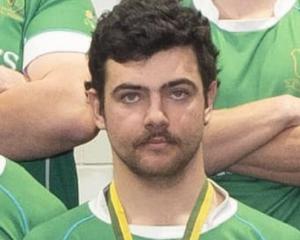The group has released a report on the impact of the anti-smacking law, including analysis of changes in statistics in areas such as child abuse, neglect and behavioural problems since 2007.
Family First has long lobbied against the anti-smacking law, saying it was unnecessary and would lead to parents being punished for trivial offences.
National director Bob McCoskrie said none of the relevant social indicators for abuse and welfare had significantly improved since the anti-smacking law passed in 2007, despite claims at the time that it would help to address child abuse.
"The fact is so many social indicators around the welfare of children prove we simply are not tackling the real causes of child abuse. It also proves the law has been completely ineffective in terms of tackling the problem it was supposed to confront."
The report calls on the Government to change the law to allow light smacking, provided it was with the hand - a measure National had unsuccessfully tried to get included in the bill in 2007.
However, the Government has little appetite to revisit the issue at the moment.
Ministers have yet to read the report, and a spokesman for Justice Minister Amy Adams said there were no plans to review the law.
Family First did have some support from Act leader David Seymour, who said the law change had done nothing.
"If I had children, would I smack them? Probably not. On the other hand, do I think the Government can help matters by regulating smacking - I think the evidence is, no it can't. You create a grey area, you've got accusations of vexatious complaints and at the same time no apparent evidence that real child abuse has been affected at all."
However, he did not expect to raise it as an issue with the National Government.
"There's a range of other things the Government needs to be focusing on."
Prime Minister John Key supported the law change when he was Leader of the Opposition in 2007 despite strong concerns in the community and a failed attempt to change it to allow a light smack with the hand.
It was initially promoted by Sue Bradford when she was a Green MP, and Labour picked it up as a Government measure.
At the time, Mr Key said there was discretion for the police not to act on trivial complaints and he would revisit the measure if there was evidence parents were being punished unjustly.
Mr McCoskrie said police had stopped reporting on the effect of the law in 2012, which made it difficult to assess how that discretion was being applied.
Social Development Minister Anne Tolley said there were far too many cases of abuse and neglect in New Zealand, which was why the Government was focusing on vulnerable children.
She said there were more notifications of child abuse, but the number requiring further action had decreased over the past two years from 61,877 to 45,463.
Substantiated abuse figures had also fallen from 22,984 in 2012-13 to 16,472 in 2014-15.
Statistics for all abuse types - emotional, physical, sexual and neglect - had fallen in recent years.
Mr McCoskrie said while Child, Youth and Family had recorded a reduction in the numbers of substantiated child abuse cases over the past two years, the police were still recording an increase.
He said health data also showed a large increase in the number of children diagnosed with behavioural problems.
The 2007 anti-smacking bill removed the defence of "reasonable force" which had previously been available for cases of assault.
A 2009 referendum asked, "Should a smack as part of good parental correction be a criminal offence in New Zealand?"
There was a 56% turnout and 87% said no.












